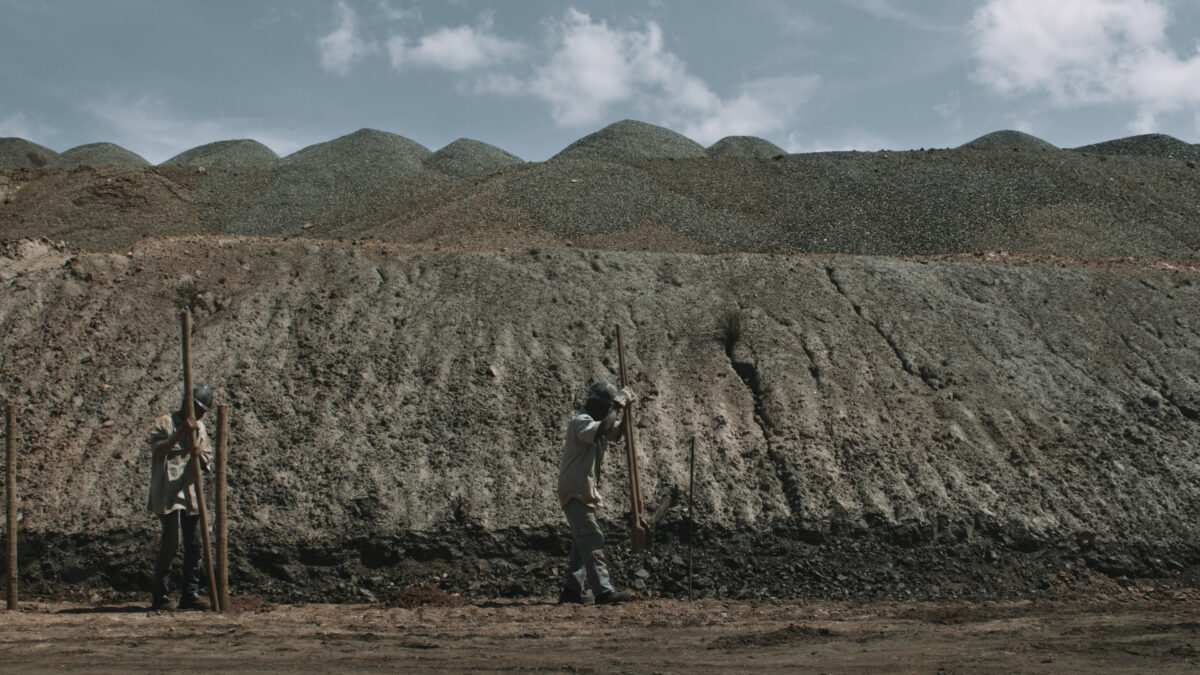A family is sitting amid what is left of their home, their belongings piled up in the open air without shelter, while bulldozers shift piles of raw material with relentless aggression. A few moments later, members of the family walk away with whatever small items they can carry on their backs, while a worker prepares the ground for the erecting of a barbed-wire fence. The persistent sound of cargo trains haunts the visually stunning but despoiled landscape in a reminder of how money never sleeps. Through a series of allegorical vignettes, Acumulação Primitiva looks at the ongoing material consequences of colonialism and capitalism on people and the land, as epitomized by the scene in which a white man is being carried by a Black man, who pants and struggles in an effort to keep going as the gravel moves dangerously beneath his feet––an homage to Lev Tolstoy’s observation that “the rich will do anything for the poor, except get off their backs.” Simultaneously engaging with the past and present of generations who have been dehumanized, dispossessed, and expelled—when not erased entirely––the work pays tribute to the survivors who bear witness to and resist the damage being continually wrought upon them by economic and political forces. Acumulação Primitiva is the second chapter of Trilogia do Capital (Capital Trilogy, 2021–ongoing), an investigation into economic concepts, their theological origins, and their tendency towards abstraction. The Marxist notion of “primitive accumulation” is evoked here to visualize the relationship between the violent expropriation of land, the commodification of labor power, and the racialized class structure, which combine to fuel the reproduction of capitalism to this day. It follows the first chapter, Dívida (Debt, 2021), which portrayed the concept of debt as a boulder looming over humanity; one which people try in vain to climb over.



